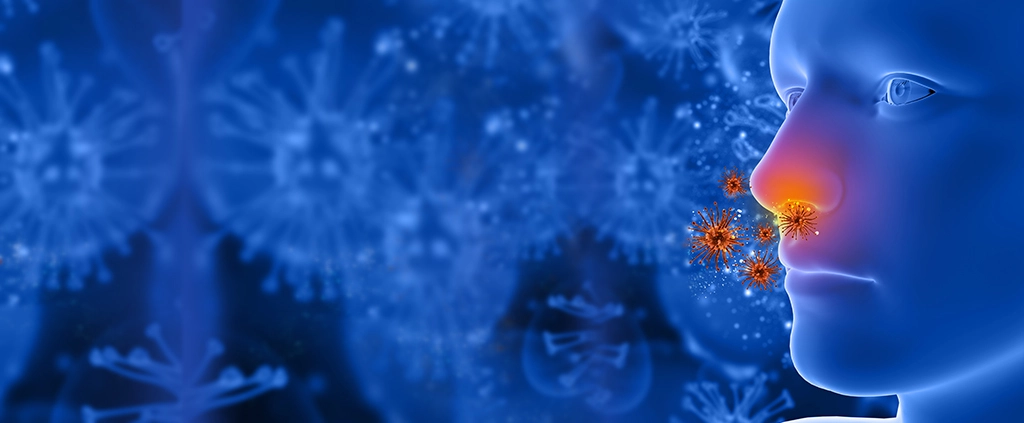Why Seasonal Allergies Suck and How to Ease the Symptoms?
Are you suffering from itchy eyes, nose, roof of the mouth and throat? Is your nose blocked or stuffy and experiencing watery eyes? Worst still, you notice dark circles under your eyes?
It’s a cause of concern but nothing that cannot be dealt with.
What you are experiencing is what we call Seasonal allergic rhinitis or Seasonal allergies and more often called “hay fever”. These allergy symptoms happen during certain times of the year, usually when trees, grasses, and weeds release tiny pollen particles into the air to fertilize other plants.
Unlike most other ailments, allergies are not the result of a weak immune system. On the contrary, allergies are caused by the very opposite of a weak immune system. When one has an overactive immune system, it reacts to things that are usually harmless, such as pet dander, certain foods or – as in the case of hay fever – pollen, grass, tree, and weed pollens as well as outdoor molds. At the metaphysical level, it can point to a fear of being attacked. The substance that causes the allergic reaction is a symbol of the area you are ignoring and fighting unconsciously.
Ask yourself: what is the symbolic “invader” trying to tell you?
Affirm that “I know what it feels like to live in harmony with environment. “
Treatment of Allergic Rhinitis:
While treatment usually involves over the counter medicines such as antihistamines, lifestyle changes may also ease symptoms.
Here is a list of 10 foods that help in alleviating the symptoms and relieve symptoms by reducing inflammation and boosting the immune system:
1. Pineapple
The fruit contains an enzyme called bromelain which can soothe the irritation and inflammation that contributes to itchy eyes and a runny nose.
2. Kale
This green leafy vegetable is rich in carotenoids; pigments which fight inflammation and inhibit the release of histamine – the cause of allergy symptoms like itchy eyes and a runny nose. Eating kale with a source of fat, such as olive oil or avocado, increases the absorption of carotenoids.
3. Red onion
Red onions provide a high concentration of the flavonoid quercetin – a powerful natural antihistamine. Responsible for the deep red color in onions, it helps to calm the cells that react to allergens in the air such as pollen and dust mites. Quercetin can also be found in apples, berries and broccoli. Onions can be used as an effective home remedy to cure cough. Slice an onion and keep it in a bowl. Add some drinking water to it. You can have three to four teaspoon of the mixture thrice a day. Make sure you consume it fresh.
4. Salmon
The omega-3 fats found in oily fish like salmon can help to reduce inflammation in the body, easing common allergy symptoms such as puffy eyes and an itchy throat.
5. Kefir
When thinking about allergies, supporting your body’s immune system is key in helping to minimise symptoms. kefir is a probiotic-rich drink that can support a strong immune system by maintaining the balance of beneficial bacteria that live in your gut.
6. Local honey
Local unprocessed honey contains small amounts of pollen from the surrounding area. There’s a belief that ingesting little quantities of local pollen during off-season months might prime the immune system to cope better during high-pollen months. While there’s little research available to prove this theory, there’s plenty of anecdotal evidence suggesting its effectiveness.
7. Garlic
As an antioxidant-rich prebiotic, garlic is incredibly nutritious. Not only does it soothe inflammation, it’s been shown to inhibit histamine release from mast cells, which may reduce the severity of your symptoms.
8. Ginger
Used for thousands of years as a natural anti-inflammatory, ginger is another food that inhibits the release of histamine from certain cells.
9. Turmeric
This golden spice is well known for its vibrant colour and its powerful anti-inflammatory and antioxidant properties. A study found that curcumin – the active ingredient in turmeric –inhibited the activation of the cells which release histamine in the body
10. Berries
Berries (especially the dark varieties) are not only rich in antioxidants, but contain a load of vitamin C which assists with DAO synthesis – an enzyme that assists in keeping the histamine in our bodies at a tolerable level (i.e. below that which might start to spark symptoms like watery eyes and an itchy throat). Many varieties such as blueberries, cranberries and raspberries also contain the natural antihistamine quercetin – helping to keep symptoms of runny nose, watery eyes and hives at bay.
Yogic kriyas like Kapal Randra Dhouti and Jal Neti are highly recommended. Make sure these practices are year-round. Other major benefits of this practice include calmness and improved sleep. Along with cleansing of the frontal sinuses, these kriyas also help with headache, mucus formation and depression.
(Make sure to watch my video on how to perform Kapal Randra Dhouti)
Mudra for Allergic Rhinitis:
-
Find a stable sitting posture and rest your hands on your thighs with palms facing up.
-
On both hands, place your index finger in the fold of your thumb.
-
Place the tip of your thumb on the side of your middle fingernail.
-
Extend your ring and little fingers.
-
Hold this position of the hands and focus on deep, steady breaths.

Of course, any of these tips will not work unless one of our primary needs is satisfied- a restful sleep. Researchers theorize that as you sleep, your body is repairing tissues, fighting off pathogens and forming memories of experiences that occurred during the day. If your body does not get enough sleep, your health suffers. Hence, adequate sleep, proper nutrition, moving away from sedentary lifestyle and using calming techniques will send a signal of peace and calm to the physical body and help the overactive immune system to REST!

